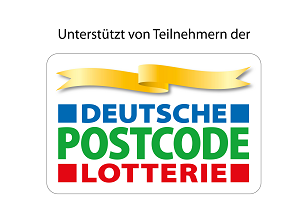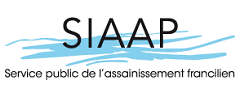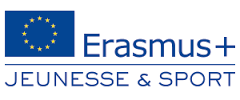Baby milk scare shows urgent need for a strong REACH
Comment by Greenpeace and the European Public Health Alliance Environment Network (text in english and in dutch)
01.12.2005 |Sascha Gabizon / Irma Thijssen
Lack of safety data on milk contaminant typical of gaps in chemicals safeguards
Brussels, 23 November 2005 -- The proposed reform of EU chemicals policy (REACH) could prevent potential threats to infant health such as the contamination of baby milk products revealed on Tuesday, but will fail to do so unless it is strengthened, health and environment organisations said today.
Italian authorities reportedly seized two million litres of Nestlé baby milk products on Tuesday after tests showed that chemicals used in the labels were seeping through the cartons into the milk. The milk was produced in Spain and sold in France, Italy, Spain and Portugal. The contaminant, isopropylthioxanthone (ITX), is an ink component used in the printing of food carton labels. Greenpeace research has found two producers of ITX in the EU, both in the UK. The packaging was manufactured by Swedish-owned Tetra-Pak in the Netherlands, according to news reports.
Very little information is available about the safety of ITX, which is a chemical produced in quantities below 1,000 tonnes. ITX is commonly a mixture of two isomers to which the US Environment Protection Agency (EPA) has given a high hazard ranking for environmental effects, based on their toxicity to aquatic species. A US report of 1999 noted a case in which six workers exposed to ITX developed skin rashes on the head and neck following exposure to the sun. Industry has not yet provided clear, verifiable information on the health effects of ITX, especially if it is consumed as a contaminant in foodstuffs.
"It is a scandal that an industrial chemical can find its way into baby milk yet there is no available information about its health impacts, but this is typical of over 90% of chemicals sold in Europe and permitted for widespread use," said Nadia Haiama of Greenpeace. "It is even more shocking that instead of calling for a strengthened chemicals regime, the European Commission led by Industry Commission Günter Verheugen is using every opportunity to reduce its force, in an attempt to please the German chemicals industry."
"Europe can only expect more chemical health scares if governments refuse to take the greater health and environment concerns of the public into account. It will be a sad day for Europe if governments vote for chemicals industry profits at the expense of the people's health, particularly vulnerable groups like babies, and environment," said Genon K Jensen, Strategic Director, European Public Health Alliance Environment Network.
Futher article on this important issue:
Baby milk scare widens in Europe
Italian authorities are seizing baby milk cartons across the country
Swiss-based food giant Nestle has ordered the recall of baby milk from France, Spain, Portugal and Italy after tests suggested chemical contamination.
Police in Italy, the largest market of the four, have begun seizing 30m litres of the baby milk from shops and depots. The alarm was raised after traces of a chemical involved in the printing process were found in samples in Italy. Nestle denies the chemical poses a risk to health but has recalled the cartons, with an expiry date of September 2006. The scare began in June when a sample of liquid baby milk produced by Nestle showed traces of isopropyl thioxanthone, a photographic chemical known by the initials ITX. This decision was taken as an extreme precautionary measure to reassure consumers
Nestle statement
The chemical is used in the printing process of the milk cartons, but appears to have made it into the baby milk itself. The Italian authorities have said the chemical may be toxic. A Nestle statement on the recall said: "This decision was taken as an extreme precautionary measure to reassure consumers. "Nestle believes that the level of ITX measured in the tested produce does not represent a health risk." Nestle spokesman Francois-Xavier Perroud said only 2m litres had been recalled in Italy, less than the 30m ordered to be seized by the authorities. A company spokesman in Switzerland said a new packaging process had been put in place to prevent contamination.
Negative light
The BBC's Imogen Foulkes in Geneva says contaminated baby milk is a food producer's worst nightmare and perhaps most of all for Nestle, which has attracted controversy over its baby milk in the past. For years Nestle has had a serious image problem because of its promotion of powdered baby milk over breast feeding in the developing world, where many new mothers have neither the money to buy the formula nor the clean water to prepare it, our correspondent says. Contaminated milk is a different issue, she says, but it still puts one of Nestle's top products in a negative light once again. Nestle has said it does not expect the recall to affect company-wide results - but with a product as sensitive as baby milk that is perhaps a little optimistic, our correspondent adds. Italy's forestry police - which is responsible for agriculture - initially seized 2m litres of milk for infants on 9 November. The wider seizure was ordered after subsequent tests showed all Nestle baby milk cartons with an expiry date of September 2006 were contaminated, the Italian news agency Ansa reports.
Angst om babymelk toont noodzaak voor sterk REACH
Ontbreken van veilingheidsinformatie over babymelk is typisch voor hiaten in chemische beveiliging
Utrecht, 1 December2005
De voorgestelde hervorming van de EU wetgeving over chemische stoffen (REACH) kan bedreiging van de gezondheid van baby’s en kinderen, zoals bij de verontreiniging van babymelk, voorkomen. De wetgeving zal falen tenzij deze wordt aangescherpt, zeggen gezondheids- en milieuorganisaties die samenwerken in het milieu- en gezondheidsnetwerk van de European Public Health Alliance (EPHA/EEN) en Greenpeace (Europe).
Italiaanse autoriteiten hebben 2 miljoen liter Nestlé babymelk in beslag genomen nadat tests hebben aangetoond dat chemicaliën uit de verpakking door het karton in de melk sijpelden. De melk is geproduceerd in Spanje en wordt verkocht in Frankrijk, Italië, Spanje en Portugal. De stof waar het om gaat, isopropylthioxanthone (ITX), is een component van de inkt die wordt gebruikt op de kartonnen pakken, die in Nederland worden gemaakt door het Zweedse bedrijf Tetrapak, volgens een nieuw rapport van Greenpeace.
Er is weinig bekend over de veiligheid van ITX. De stof wordt geproduceerd in een volume lager dan 1.000 ton. ITX is een mengsel van twee isomeren. Volgens de Amerikaanse Environment Protection Agency(EPA) zijn deze isomeren toxisch voor waterorganismen en vormen ze een hoog risico voor het milieu. Een Amerikaans rapport uit 1999 beschrijft een voorval waarbij 6 arbeiders die waren blootgesteld aan ITX huiduitslag op het gezicht en in de nek ontwikkelden toen zij in de zon kwamen. De industrie heeft nog geen helderen informatie over ITX verstrekt, en al helemaal niet over het gebruik van ITX als contaminant in voedingsmiddelen.
“Het is een schande dat een chemisch bedrijf babymelk kan produceren terwijl er geen informatie beschikbaar is over de gezondheidseffecten,.Maar dit is wel typisch voor meer dan 90% van de chemicaliën die in Europa op de markt zijn en wijd zijn verspreid,”, zegt Nadia Haiama van Greenpeace. “En het is nog schokkender dat de Europese Commissie, geleid door de Industrie Commissaris Günther verheugen, in plaats van een strengere wetgeving over chemische stoffen te eisen, elke kans grijpt om REACH af te zwakken om maar aan de lobby van de Duitse chemische industrie tegemoet te komen.”
“Europa kan alleen maar nog meer chemische gezondheids rampen verwachten als de overheid weigert om de grote zorgen van de bevolking over gezondheid en milieu in acht te nemen. Het wordt een zwarte dag voor Europa als de deelstaten stemmen voor de kant van de chemische industrie ten koste van de volksgezondheid en in het bijzonder ten koste van kwetsbare groepen zoals baby’s”, zegt Genon Jensen, Strategisch Directeur van EEN.
“WECF vraagt zich af of deze stof ITX ook niet in Nederlandse baby- en andere voedingsmiddelen kan zitten. De Tetra-verpakkingen worden immers in Nederland gemaakt voor een groot aantal voedingsmiddelen !”zegt Marie Kranendonk, president van het Europese netwerk Women in Europe-WECF. “Het zoveelste argument voor een sterk REACH!”.
Contactpersonen:
Nadia Haiama, Chemicals Policy Adviser, Greenpeace European Unit, tel +32 476 961 376
Genon K Jensen, Strategic Director, EPHA Environment Network, tel +32 2 233 3885
Marie Kranendonk, WECF, tel +31 30 2310300



































